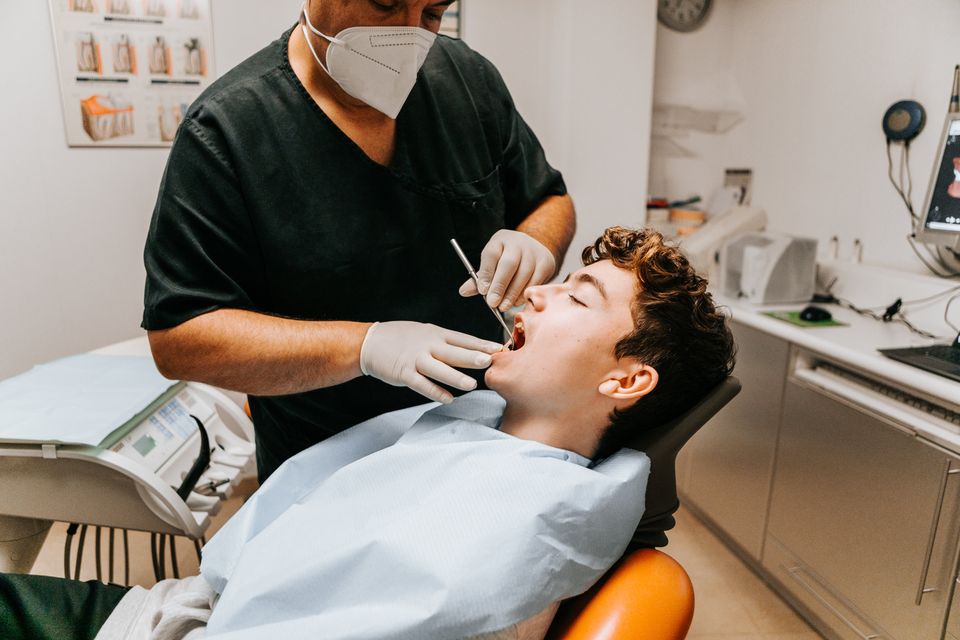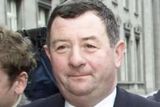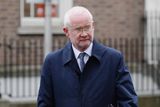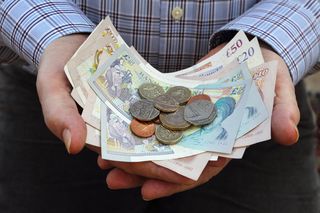Dentists criticise Stephen Donnelly over ‘offensive’ claim that medical card holders are being denied care
Health Minister has accused some dentists of ‘choosing to not treat’ public patients
About 600 of the IDA’s 1,800 members participate in the medical card scheme. Stock image by Getty
Dentists accused Health Minister Stephen Donnelly of repeating “offensive” and “baseless allegations” about medical card patients being denied care.
Irish Dental Association (IDA) chief executive Fintan Hourihan wrote to Mr Donnelly in December complaining comments made at an Oireachtas Health Committee meeting two days earlier were “unfair” and “unacceptable”.
Mr Donnelly told the committee dentists are “choosing to not treat public patients”. The minister said this was despite more funding being allocated to the medical card scheme.
Dentists have long-standing gripes with how the Dental Treatment Services Scheme (DTSS) operates.
They say it is too restrictive because it does not allow for preventative care and limits the treatments dentists can administer.
Under the scheme, medical card holders have access to an annual dental examination, teeth cleaning, extractions and two fillings per year. Other treatments are available but can require HSE approval.
Mr Hourihan said the scheme can be costly for dentists, and many are opting out of it. About 600 of the IDA’s 1,800 members participate in the medical card scheme.
“This is equivalent to one dentist per 2,500 eligible patients,” Mr Hourihan said.
The IDA has called for a new medical card scheme to be introduced but Mr Hourihan said successive governments have failed to deliver one that works.
Read more
Mr Donnelly told the Health Committee the current medical card contract with dentists “is old and too restrictive” but new talks with dentists were “kicking off”.
“While we need to listen to, respect and acknowledge the concerns being raised by the dentists, we also need to push back on them a little,” the minister added.
“The dentists need to play their part. The vast majority of GPs treat public patients. They do not turn around to their GP card patients and say, ‘I am not accepting your card but give me €70 and I will see you’.”
In a letter, released under Freedom of Information laws, Mr Hourihan asked the minister to withdraw his comments.
“Regrettably, you chose to repeat baseless allegations about denial of care to medical card patients, a slur which is particularly offensive to those dentists who have remained within the scheme at considerable cost,” he wrote.
“Despite repeated promises to the contrary, we are no closer to addressing the obvious problems in accessing care by medical card holders and we still wait for meaningful engagement and proper consultation. As such, it is not accurate to state that engagement with our association has begun, or that discussions are ‘kicking off’.
“Calling into question the integrity of those who are providing and have provided this service is not only unfair but an unacceptable commentary in the absence of any real action on your part to replace the scheme which has been unfit for practice for well over a decade.”
The minister’s private secretary responded to Mr Hourihan, saying Mr Donnelly believes oral healthcare access for medical card patients should be maintained while reform of the service is progressed. He said the minister wanted to see more dentists consider taking on a DTSS contract.
“While dentists may choose whether they will hold a DTSS contract, the minister is concerned that medical card patients in some areas are unable to access care,” he added.
Under the scheme, dentists are paid €40 for an examination. Payments for additional treatments vary.
A spokeswoman for the Department of Health said an additional 154,864 treatments were provided under DTSS last year. The scheme will be reformed through the implementation of the National Oral Health Policy, she added.
“A range of measures were introduced by the Minister for Health from May 1, 2022, to introduce and reintroduce elements of preventative care and increase the fees paid to dentists for most treatment items by 40pc to 60pc.”
Join the Irish Independent WhatsApp channel
Stay up to date with all the latest news











